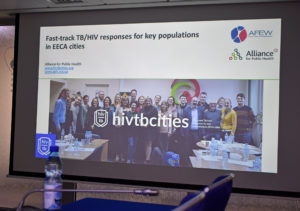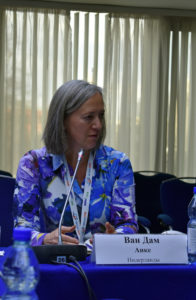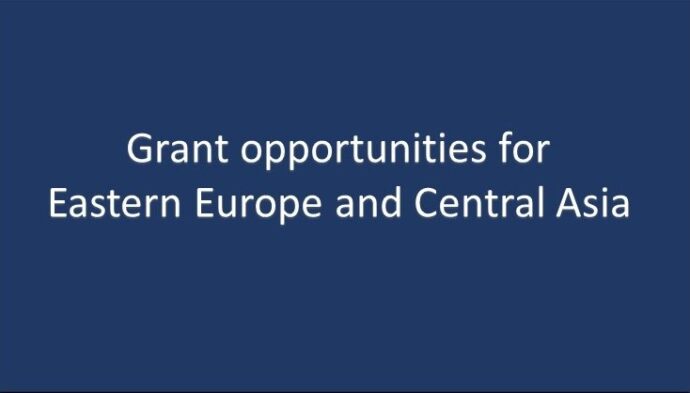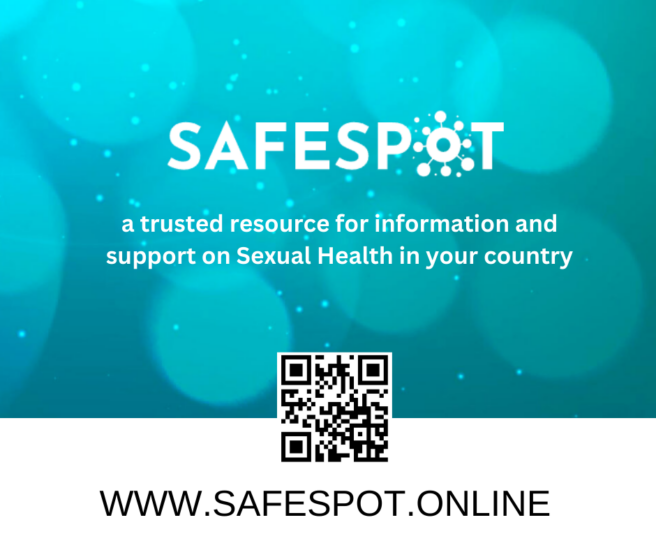Dynamics of the HIV epidemics in big cities is a pressing issue all over the world. According to the United Nations, by 2050 most people will live in big cities. This is most relevant for the developing countries with low incomes and growing HIV epidemics. Considering that the key populations are concentrated in metropolises, experts point out that there is obviously a need to implement HIV prevention and treatment programs at the municipal level. The decision to end the AIDS epidemic in big cities by 2020 is embedded in the Paris Declaration signed on 1 December 2014 with support of the UNAIDS.
This topic is the basis of the Fast-Track TB/HIV Responses for Key Populations in EECA Cities Project implemented by AFEW International in collaboration with Alliance for Public Health and presented within the VI Eastern Europe and Central Asia AIDS Conference (EECAAC 2018) held in Moscow, Russia. Together with the municipalities of five big EECA cities, civil society representatives developed measures in response to the spread of HIV/TB in key populations.
On 20 April, Anke van Dam, Executive Director, AFEW International moderated a session called “Fast-Track HIV/TB Responses in Healthy Cities” at EECAAC 2018. The session was co-chaired by Svetlana Plămădeală, Country Manager, Coordinator, UNAIDS, Moldova; Alla Yatsko, President, Public Association ‘Youth for the Right to Live’, Moldova; and Erika Tserkasina, Program Officer, Eurasian Coalition on Male Health, Coordinator, MSM Programmes in Almaty, Beltsi, Odesa and Sofia, Estonia.
 “We cooperate with five metropolises in the region: Odesa (Ukraine), Tbilisi (Georgia), Beltsi (Moldova), Almaty (Kazakhstan) and Sofia (Bulgaria). The key criteria in selecting the cities were HIV prevalence and readiness of the local authorities for cooperation. Through organizing a network of community representatives, we established cooperation with the municipalities,” said Anke van Dam, Executive Director, AFEW International.
“We cooperate with five metropolises in the region: Odesa (Ukraine), Tbilisi (Georgia), Beltsi (Moldova), Almaty (Kazakhstan) and Sofia (Bulgaria). The key criteria in selecting the cities were HIV prevalence and readiness of the local authorities for cooperation. Through organizing a network of community representatives, we established cooperation with the municipalities,” said Anke van Dam, Executive Director, AFEW International.
The goal of the Fast-Track TB/HIV Responses for Key Populations in EECA Cities Project is to contribute to achieving 90-90-90 targets, including reduced mortality and increased funding for HIV/TB treatment. One of the main tools is strengthening partnership between the authorities and civil society. To achieve this objective, the project includes research studies, workshops, and meetings with decision-makers. It is planned that the preliminary results of the project will be presented at the International City Health Conference ‘Developing healthy responses in a time of change’ to be held in Odesa on 13-14 September 2018.





